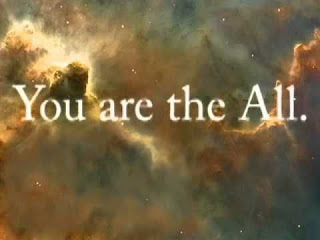"When all the facts are rightly understood, there will be
"No Final Conflict" between Scripture and natural science."
There is room for disagreement among Christians who believe in
the total truthfulness of Scripture, for example, was it 7 literal days or
longer?
In our understanding of the natural world and our understanding of
Scripture, our knowledge is not perfect.
God, who speaks in Scripture, knows all facts, and he has not
spoken in a way that would contradict any true fact in the universe.
However, three theories about Creation seem inconsistent with
Scripture:
1. Secular theory (i.e. without God)
2. Theistic Evolution, (i.e. Evolution took place but God guided
it). God speaks about creation orderly and intentionally, not in random
mutation as evolution would suggest.
Furthermore, if what God made was "good" and "very
good," then why would it have to go through so many mutations to it's
final form?
Grudem points out that despite the evidence supporting creationism
and the Bible, the ultimate reason people go up against it is because "It
seems as though they will believe in anything, so long as it is not belief in
the personal God of Scripture, she calls us to forsake our pride, humble
ourselves before him, ask his forgiveness for failure to obey his moral
standards, and submit ourselves to his moral commands for the rest of our
lives. "
3. If life was not created by God or responsible to him,
then of what significance is human life?
Honest reflection on this notion should lead people to a profound sense
of despair.
To add to this, without God there are no moral
absolutes. My moral ideas are “good for
me but not to be imposed on you.”
Anything goes.

There is a group that suggests that from the first “day”
when God created the heavens and the earth and the second “day.” This allows
for all the millions of years old fossils to have a place in the Biblical
account. (This viewpoint also suggests
the darkness on the first day as a result of God’s judgement/wrath, perhaps
over when Satan rebelled). This is an argument
from silence, no scripture verse directly relates to this.
Next question: HOW OLD IS THE EARTH? This is an interesting
yet less important question compared to the doctrinal questions of creation
already covered. (God’s sovereignity in making the earth, doing it well,
etc).
Old Earthies, agree with modern science that the earth is
4.5 billion years old. They draw from
the verse, 2 Peter 3:8, “one day is as a thousand years, and a thousand years
as one day (for God)”.
· Day age view says, each day
is an “age” of time. They are in
concordance with the Bible and the scientific conclusions about dating.
The literary framework view
says, this should not be taken literarily but rather as a framework or a
literary device to understand creation.
Young Earthies say the earth is 10 to 20 thousand years old.
The verses that say “and there was evening,
and there was morning, the first day.” Give strength to their argument that it
was indeed a true 24 hour time period.
·
Mature creationism: That
God made the earth with a deal of maturity already from the get go. For
example, Adam and Eve were made as adults, not created and thrown on the earth
as infants. This suggestion questions
how we can know that radiometric dating can be reliable in all times,
considering that the substance of the earth could have changed the way the test
results read out.
·
Flood geology: this would
solve a lot of fossil/hard substances (diamonds, coal), due to the weight and
power of the flood on the earth.
Both are valid options for Christians who believe the Bible
today.
Simply adding up all the Biblical characters from Adam to
Jesus is incomplete, as the Bible is clear that in it’s genealogies it includes
the main/important characters primarily.
Did animals die before the fall? What about dinosaurs? (did
they come along with all the other animals that Adam and Eve named, or where
the animals living much before man was created).
Up next, the providence of God.


